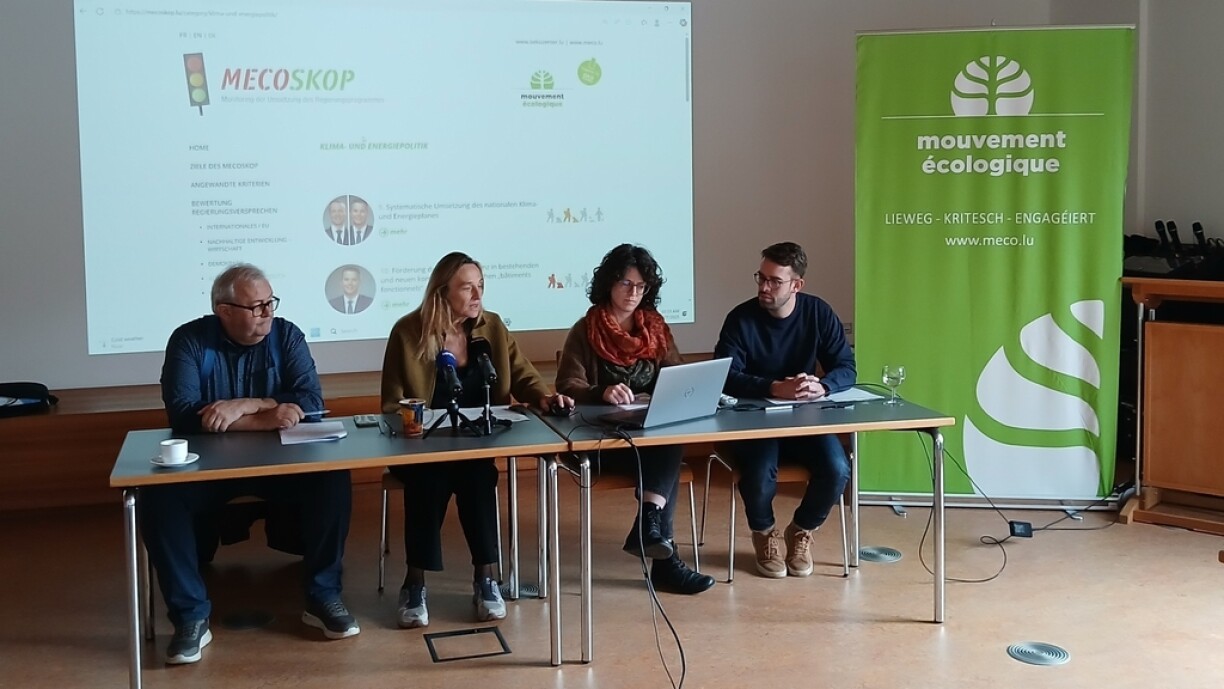
At a press briefing on Thursday, Luxembourg’s Ecological Movement (Mouveco) delivered its evaluation of the CSV-DP coalition’s first two years in power.
The environmental organisation concluded that the government has fallen short of its own sustainable development ambitions. Using the “Mecoscope” platform, which tracks 77 key promises from the coalition agreement, Mouveco reported a disappointing outcome: not a single promise has been fully implemented. Only one is nearing completion, 38 are in a preliminary phase, and another 38 have seen no progress at all. While Mouveco acknowledged that some room for improvement is normal two years into a five-year term, it described the lack of fully realised proposals as “nothing short of astonishing.”
Marc Krier, Mouveco’s lead on climate and energy policy, suggested the issues are fundamental. He criticised the entire economic system for being “not currently in transition” and still operating on “a 20th-century logic of constant growth.” This, he argued, hinders the country’s future ability to implement a necessary ecological transition.
Mouveco President Blanche Weber also criticised the government’s “pragmatic” approach, which aims to bring people along but lacks, in her view, a clear goal. Weber argued that the government must first define what is needed for society and the economy to respect biodiversity limits and halt the ongoing loss of species in Luxembourg.
She stated that such clear goals are essential not only for a successful energy transition and independence from fossil fuels but also for creating jobs within Luxembourg. Additionally, Weber called for a new agricultural policy “fit for the future”, one that works with nature rather than continuing to destroy it.
Against this backdrop, Mouveco directed sharp criticism at the Ministry of the Environment and its minister, Serge Wilmes. According to Emile Espen, a member of Mouveco’s administrative board, Wilmes is failing to set the necessary course. Espen believes that on critically important issues involving other ministries, the Ministry of the Environment regularly “draws the short straw”, citing the reform of agricultural policy as a key example.
Espen did, however, acknowledge that the problem is not solely Wilmes’s fault, pointing to an evident lack of an overarching approach to environmental protection across the government.
Mouveco suspects this disjointed approach is likely the main reason for poor communication between ministries. Alternatively, the organisation questions whether different ministries are simply pursuing conflicting goals. As further evidence, Mouveco noted that when a single ministry has clear responsibility, progress is often more effective.
The group offered praise in two such cases: to Energy Minister Lex Delles for the pre-financing of solar installations, and to Mobility Minister Yuriko Backes for consistent investment in public transport.